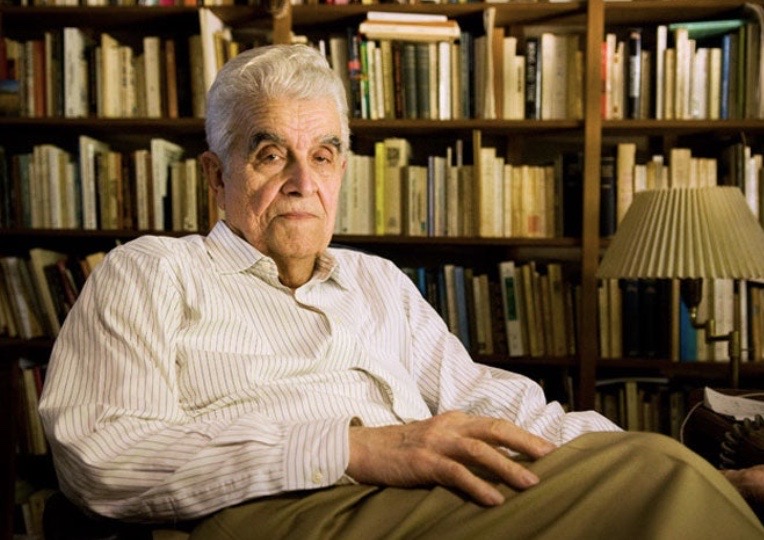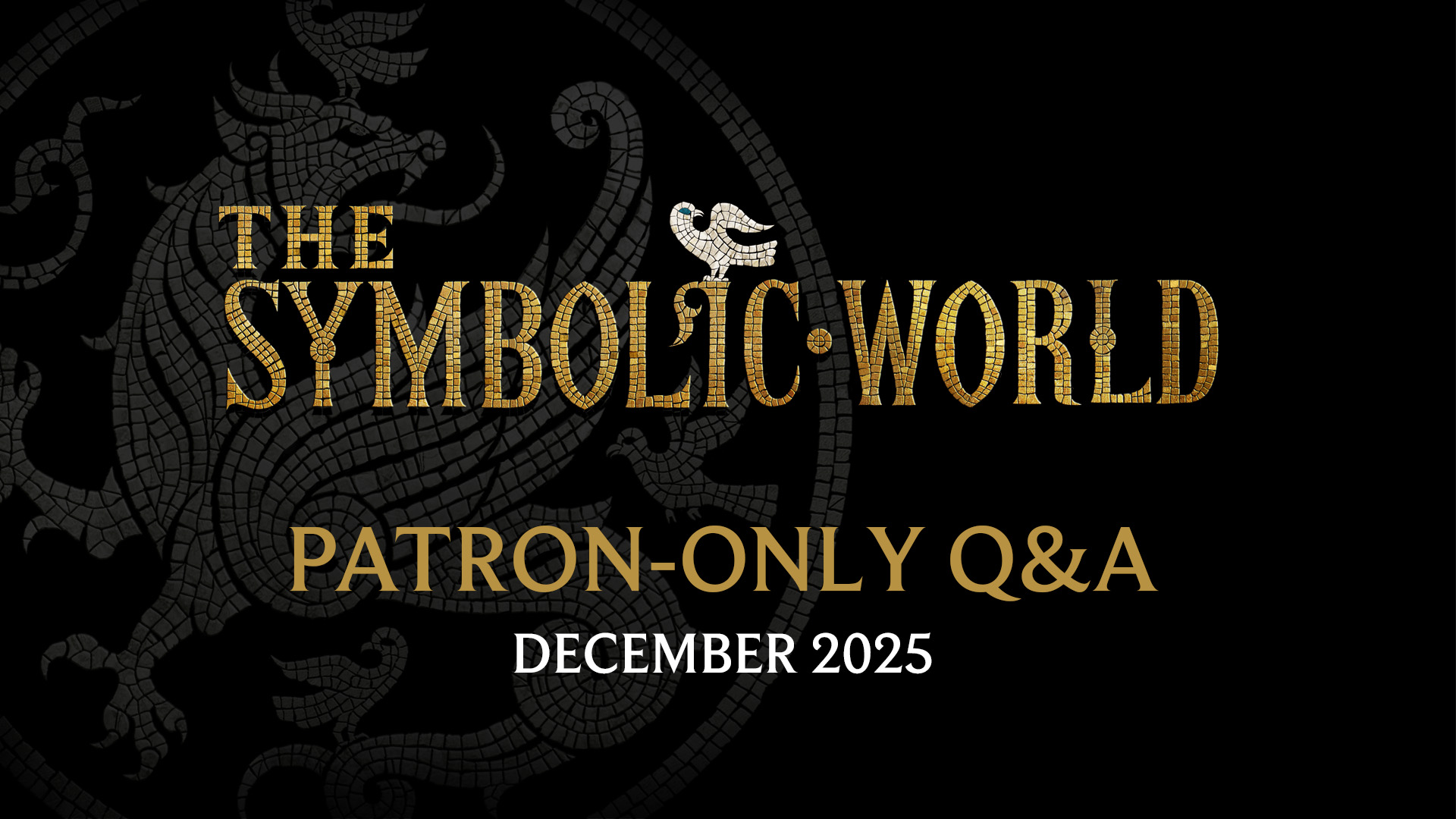Grounding Your Intellect With Peterson and Augustine
Jordan Peterson has repeatedly stressed the fact that we should set our own house in order before criticizing the world.1 To effect any kind of positive change, you have to start small and build your competence up the hierarchy. The world is an extremely complex system, and if you try to fix something above your level, you’ll most likely make things worse. For example, you won’t fix our economic system if you can’t fix your own financial problems. You won’t fix our political problems if you can’t fix your family’s problems. You won’t fix our social media problems if you can’t fix your neighbourhood’s problems.
While Peterson typically makes this point in the context of social change, here in this short essay I want to show that the same applies in the more overtly intellectual realm. Even abstract philosophy and theology has to ultimately be embodied and worked up to. You can’t jump up layers of reality too fast. To make my point I will contrast someone whose intellectual life was deeply embodied, i.e., Saint Augustine, with others whose intellects were quite detached, i.e., Descartes and Kant. What I hope will become clear is that Augustine’s intellectual achievements are deeply tied to the fact that he was a bishop whose work had to actually land in his flock. His ideas couldn’t float too far off like Descartes’ and Kant’s.
Augustine’s most famous work is the Confessions, which are precisely an autobiography. This is fundamentally the story of Augustine trying to set his own house in order. He is keenly aware of his sins and is doing his best to work on that. He is barely worried about others. But in pulling himself together, Augustine immediately has a huge impact on those around him. A large number of his friends convert to Christianity with him, and Augustine soon becomes a priest and later a bishop, where he further develops his ideas as he takes care of his flock.
Let me here underline how different this is from modern intellectual life. Augustine’s ideas were battle tested through real people. He was informed by the lives of his parishioners, of his fellow priests, and by the numerous debates he had with heretics. And in turn, the ideas that Augustine came up with in response had to actually land. Augustine was getting real feedback that is extremely rare in modern academic life.
And all this culminates in his Confessions, which are simultaneously an autobiography and one of the founding texts of our entire western civilization. It was one of the main texts read throughout the middle ages, and to this day it remains a classic. It is simultaneously an individual prayer between Augustine and God, and one of the founding texts of Christian spirituality and theology in general. Indeed, to this day, it still brings large numbers of people to conversion every year, and is still widely studied for the way it brings together Aristotelianism, Neoplatonism and the Christian narrative. It gathers the entire human experience, from the emotional to the intellectual, and it truly bridges between all layers of reality, from the personal to the social and ultimately to the divine.
Thus, in setting his own life in order, Augustine ends up setting aright his parish, and even to a large extent Western civilization for centuries. In individually striving to become a saint, i.e., in becoming a microcosm where heaven and earth meet, Augustine becomes an anchor for a larger civilizational union of heaven and earth.
Contrast this with modern philosophers like Descartes or Kant for example. While Descartes and Kant were extremely intelligent, they were also very disconnected people. They were single and were not priests. They did not have families nor flocks to take care of. This also means that their ideas remained abstract. Unlike Augustine’s philosophy, which was meant to actually help his parishioners, Descartes and Kant had only their own minds and fellow academics to work out ideas with. They were not firmly grounded in reality and that is why their worldviews were not grounded either.
Now, I do not doubt Descartes’ or Kant’s good intentions. They were genuinely trying to heal the tension between the modern scientific third-person perspective of the world and our immediate first-person phenomenology. Neither do I doubt the ingenuity of their proposed solutions. But the fact is that those solutions only made things worse. Descartes disconnected our minds from our bodies with dualism,2 and Kant disconnected us from things with transcendental idealism.3
It is possible to trace many negative consequences that these ideas had throughout history, such as creating the myth of disembodied reason. Think of Spock or the modern nerd. And at the same time, those ideas also created the reaction to disembodied reason, namely decadent romanticism, where one gives up rationality to recover contact with reality. Think of new age pseudoreligions for instance. Or, more dramatically, think of Napoleon, who stands in direct opposition to the nerd archetype. Indeed, it is in reaction to Descartes’ and Kant’s disconnected and defanged reason that Napoleon asserts his will on all of Europe. And note that in doing so, Napoleon was actually quite popular. People were craving a genuine contact with reality and he offered it to them, as violent and irrational as that contact with reality was.
Tragically, you can even see the disconnecting effect of Descartes’ and Kant’s ideas in their very lives. Grounded too much on mathematical and physical knowledge to the detriment of other kinds of knowledge, their ideas ended up having a schizophrenic effect, technically speaking. The psychiatrist Iain McGilchrist makes this point very powerfully in the last few chapters of his book The Master and his Emissary, which are about the Enlightenment, Romanticism and the Industrial Revolution. Here’s a very expressive passage:
Kant described marriage as an agreement between two people as to the “reciprocal use of each others’ sexual organs”; Kant also, it may be noted, remained single, and died probably a virgin. Descartes described laughter as that which "results when the blood coming from the right-hand cavity of the heart through the central arterial vein causes the lungs to swell up suddenly and repeatedly, forcing the air they contain to rush out through the windpipe, where it forms an inarticulate, explosive sound. As the air is expelled, the lungs are swollen so much that they push against all the muscles of the diaphragm, chest and throat, thus causing movement in the facial muscles with which these organs are connected. And it is just this facial expression, together with the inarticulate and explosive sound, that we call ‘laughter’.” Well, that’s not what I call laughter—although it’s hard not to laugh. But what’s striking here is not just the sense of disgust, the deliberately disengaged, mechanical attitude taken by Descartes in this anatomy of hilarity. It’s that his authoritative manner is not in any way inhibited by the fact that actually he had no idea what he was talking about. His anatomy is a complete work of fantasy. But laughter was to be put in its place, because it was spontaneous, intuitive and unwilled, and represented the triumph of the body. I am reminded of the story that Voltaire, when asked if he had ever laughed, responded: “je n’ai jamais fait ha! ha!”4
Now, we could say a lot about the philosophical problems in Descartes and Kant’s work, and many people have, but I think that the above quote shows very concretely that their projects went seriously wrong. Unchecked by others, their disembodied philosophies ended up disembodying even them. And could they not? How could abstract solutions devised by isolated academics possibly solve complex worldview problems? They tried to answer questions that were too far from their own being. They tried to jump up layers of reality too fast, and in doing so they separated their heads from their bodies.
It’s really the same process that goes on in an individual. Your perception of abstract patterns rests on your perception of concrete patterns. Before you can do mathematics, you must learn to play with objects. Before you learn to manage a team of people, you need to learn to manage yourself. Before you can discern historical patterns, you must learn to discern narrative patterns in individuals, etc.5 In trying to address civilization-wide philosophical problems without having developed their competency incrementally through priesthood or even fatherhood, Descartes and Kant had extremely little chance of success. They stood on too little ground for the size of their projects.
In contrast, Augustine created a worldview that homed the West for a thousand years because, in addition to being a genius, he was deeply grounded. Frankly, the self-knowledge and emotional depth that transpire in Augustine’s work make him seem like he’s barely even in the same species as Descartes and Kant. And not only did he genuinely put his ideas to the test in his own life, in his own body, he also did in a large body of people. Indeed, as a bishop, Augustine was the head of his flock.6
Now, once we’ve had this intuition with examples such as Augustine, Descartes and Kant, we can apply it to the history of philosophy quite broadly. The more a philosopher embodied his ideas, the truer his ideas tended to be. If you look at the Greeks such as Plato and Aristotle for instance, you see well developed ideas that still have value today, 2500 years later, because they emerged in the context of full lives. Like all Greek citizens, they would be expected to have families, argue with people, do gymnastics, go to war, probably run a business, etc. Accordingly, Plato and Aristotle couldn’t let their ideas float too far off from ground reality—they had lives to live.
This idea of progressive embodiment of knowledge was present in the tradition of liberal arts education from late antiquity to the middle ages. Philosophy and theology were the queen disciplines and you couldn’t get to them until you had worked through the lower ones. It’s also for this reason that Plato, in book VII of The Republic, only has his pupils start studying philosophy at age 30.
I would argue that philosophy got even better with priests and bishops like Augustine and the Cappadocian Fathers, whose ideas had to not only work in their own lives, but more importantly in the lives of their flocks. And in contrast, you can see a decline and fragmentation in the history of philosophy when you get to the Enlightenment, where many full time isolated intellectuals emerge. As discussed above, you see figures like Descartes and Kant whose lives are not very grounded and accordingly end up producing ideas that are themselves not very grounded.
You can still see the consequences of this today if you go to a philosophy department. You’ll notice that there are various, very different schools with often very little in common because they each stand on their own little patch of ground. To identify two extremes, you’ll see some analytic philosophers who attempt to erect entire worldviews on the restrictive grounds of science, and on the other end of the spectrum you’ll see phenomenologists who attempt to erect entire worldviews on the limited ground of their personal experiences. Because they’re not part of one body, under one priest or bishop for instance, both extremes remain fragmented and ultimately unsatisfactory. Because they are fragmented as people, their ideas remain fragmented.7
Let me conclude by bringing it back to where this essay first started, namely Jordan Peterson. He is actually a very good and encouraging example of an intellectual whose work is well grounded, and that is in large part why his ideas have enjoyed widespread and generally positive recognition. He has forged those ideas through the layers of the hierarchy, starting by sorting himself out, and then moving on to sort out his family and clients. His ideas have helped him keep his family together despite decades of serious health struggles, and they have also helped dozens and dozens of clients. Thus, while Peterson is not a bishop, he has nonetheless enjoyed a depth of feedback that very few modern intellectuals have. His work rests on a lot of ground, and that’s one of the reasons why it rings so true.
Linked Articles & Posts
Linked Premium Articles & Posts
- Peterson, Jordan. 12 Rules for Life. Chapter Set your own house in order before you criticize the world. Penguin Random House. January 2018. https://www.amazon.ca/12-Rules-Life-Antidote-Chaos/dp/0345816021
- Vervaeke, John. Awakening from the Meaning Crisis Episodes 21 and 22. YouTube, June 2019. https://www.youtube.com/watch?v=x90XKjhcu4w&list=PLND1JCRq8Vuh3f0P5qjrSdb5eC1ZfZwWJ and https://www.youtube.com/watch?v=T-e2Z49n2h8&list=PLND1JCRq8Vuh3f0P5qjrSdb5eC1ZfZwWJ
- Vervaeke, John. Awakening from the Meaning Crisis Episode 23 at 8:23. Youtube, June 2019. https://www.youtube.com/watch?v=Noc1OH0CUBc&list=PLND1JCRq8Vuh3f0P5qjrSdb5eC1ZfZwWJ
- McGilchrist, Iain. The Master and his Emissary at 356. Yale University Press, New Haven and London, 2019
- For more on how we develop our perception gradually, see Marceau, Jean-Philippe. Perception is Symbolic, The Symbolic World Blog, August 2020. https://thesymbolicworld.com/articles/bible/perception-is-symbolic/
- For more on head-body symbolism, see Marceau, Jean-Philippe. Rediscovering Forms, The Symbolic World Blog, April 2020, https://thesymbolicworld.com/articles/rediscovering-forms/
- For more on this, check out the following discussion I had with John Vervaeke: Creation and the Dialectic of Emergence and Emanation, Youtube, October 2020, https://www.youtube.com/watch?v=-VBl9Jv8eR0
MEMBERSHIP
Join our Symbolic World community today and enjoy free access to community forums, premium content, and exclusive offers.



.svg)



.svg.png)






Comments